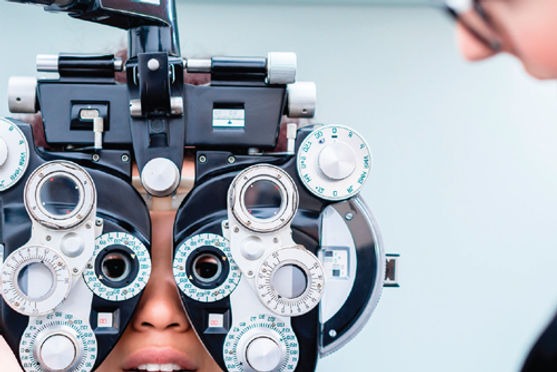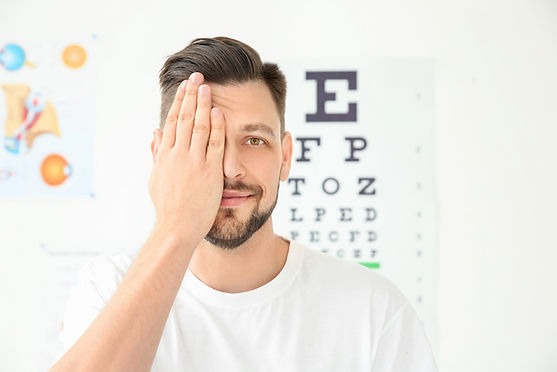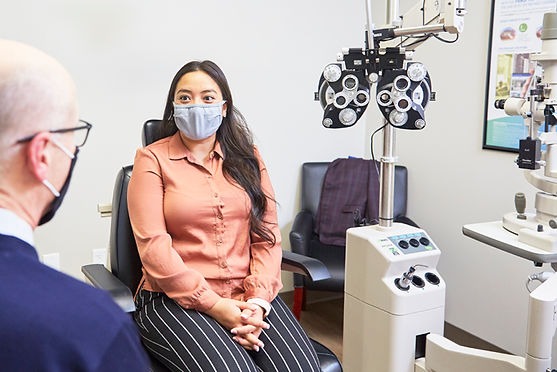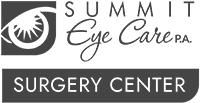
An annual eye examination helps ensure that the quality of your life isn’t impacted by poor visual health. Let us take care of your family’s eye health so you can focus on enjoying life together.
At Summit Eye Care, we’re always working to safeguard your eyesight, caring for your eyes through every stage of life.
If you are a new patient, please download and complete the New Patient Forms and bring them to our office.

What to Expect During Your Exam
An eye exam includes a series of questions, tests and state-of-the-art assessment methods to evaluate your eyesight and eye health.
Initial Tests
An experienced technician will escort you to the examination room, take your medical history and perform tests which include:
Eye Muscle Test: Checks to see that the muscles that control your eye movement are functional.
Visual Acuity Test: Measures how well you see at a distance. The technician will ask you to pick our different letters of the alphabet printed on a chart.
Refraction Assessment: Uses a computerized refractor to measure your eyes and estimate the prescription you need to see clearly. The doctor will fine tune this assessment during his examination.
Confrontation Visual Field Exam: Tests the peripheral vision and whether you have difficulty seeing in the periphery.
Slit-lamp Examination: Your doctor will use a microscope to examine the cornea, iris, lens and anterior chamber of your eye.
Retinal Examination: This exam allows your doctor to examine the back of your eye, including your retina, optic disk, and the underlying layer of blood vessels that nourish the retina. Your pupils must be dilated with special eye drops.
Eye Pressure (tonometry): Measures your intraocular pressure – the pressure inside your eyes. It helps us detect glaucoma, a disease that causes pressure to build up inside your eyes and can cause blindness.

Treatment & Follow-up
In addition to these basic tests, you may need more specialized tests, depending on your age, medical history and risk of developing eye disease.
It is important to follow your eye doctor’s instructions for the use of medications, such as eye drops. It is equally important that you keep all scheduled follow-up visits.







